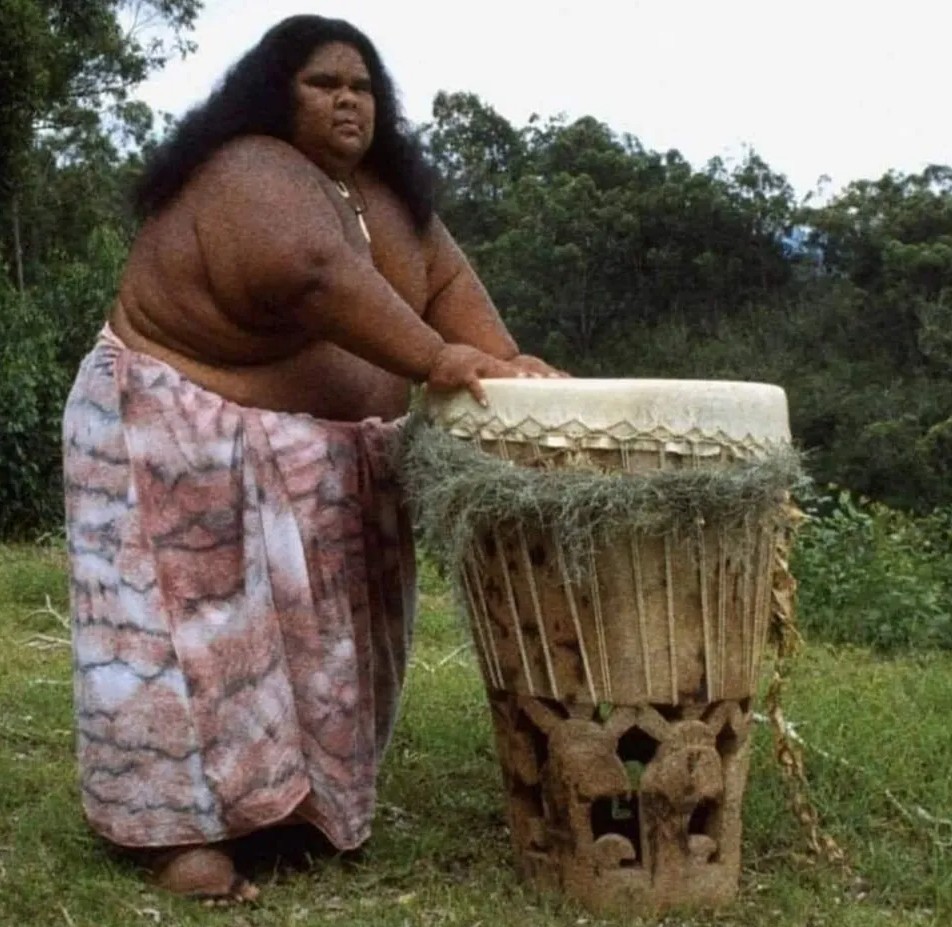The Night a Rainbow Was Born: Israel Kamakawiwo‘ole and the Song That Touched the World
It was 3 a.m. in 1988 in Honolulu, Hawai‘i — the kind of hour when most of the city sleeps under a blanket of stars, the waves resting against the shore in quiet rhythm. But for
Israel Kamakawiwo‘ole, affectionately known as “Bruddah Iz,” sleep could wait. He had something in his heart that needed to be released — something that couldn’t wait for morning.
He picked up the phone and called a local recording studio.
“Please,” he asked the engineer on the other end. “Can I come in? I have an idea.”
The studio technician, perhaps sensing the urgency in his voice or simply knowing the soul he was dealing with, agreed. He opened the doors that night to one of the most
magical moments in modern music history.
One Take, One Voice, One Ukulele
Israel walked in quietly, carrying nothing more than his ukulele. There was no entourage. No backup musicians. No elaborate production. Just a man, a melody, and a message that had lived in his soul for years.

Then, in a single take, with no prior rehearsal or arrangement, Israel began to sing.
“Somewhere over the rainbow, way up high…”
His voice was soft, like the first light of morning.
Delicate but powerful, full of warmth, sadness, and longing. The ukulele strummed beneath his voice, creating a soundscape that felt both vast and intimate — like standing on a quiet beach while the ocean tells you its secrets.
By the time he was done, the room was silent.
No retakes. No edits. Just one perfect, improvised performance — and then he left.
What Israel Kamakawiwo‘ole recorded that night would go on to become
one of the most beloved versions of any song ever performed.
A Song that Traveled the World
His medley of “Somewhere Over the Rainbow/What a Wonderful World” didn’t just chart — it
transcended generations, cultures, and languages.
It has been used in countless films, commercials, weddings, memorials, and quiet moments of reflection. It’s been played at the beginning of lives and at the end of them. It’s a lullaby, a farewell, a prayer, and a dream — all wrapped into one.
What made it so universally powerful wasn’t just the melody, or even the lyrics. It was Iz himself — his soul echoing through each note, his heart laid bare in every breath.
You didn’t just hear him sing.
You felt him.
The Gentle Giant with a Giant Heart
Israel Kamakawiwo‘ole wasn’t just a singer — he was a symbol of Hawaiian identity and pride
. Weighing over 700 pounds for much of his life, he was often referred to as the “gentle giant” because of his kind spirit, gentle nature, and powerful advocacy for the Hawaiian people.
He sang not just to entertain, but to preserve a culture, to share a history, to speak truth through harmony. His music was infused with aloha — not just as a word, but as a way of being: love, compassion, peace, and connection.
Though he battled serious health issues related to his weight, he never let them define him. In every performance, interview, and appearance, he carried with him humility, humor, and deep wisdom
But even legends have limits.
On June 26, 1997, Israel Kamakawiwo‘ole passed away at just 38 years old due to respiratory failure. All of Hawai‘i mourned.
His state funeral
was attended by thousands. His ashes were scattered in the Pacific Ocean, and his beloved ukulele was set on a surfboard to float alongside him — his final voyage beneath the skies he had sung about.
The Echo That Never Fades
And yet, even decades after his passing, his voice still echoes across oceans and borders. His rendition of “Somewhere Over the Rainbow” continues to comfort, to uplift, to remind people — in moments of grief or joy — that beauty can be simple, and peace can be found in the quiet.
It’s the sound of hope.
Of longing.
Of believing there’s still a “land that I heard of once in a lullaby.”
And it all started one night, at 3 a.m., with a phone call and a song that couldn’t wait to be born.
🌈 A Legacy of Aloha
Israel Kamakawiwo‘ole left us far too soon, but his spirit never really left.
He lives on every time someone listens to that song — in hospital rooms, at beach weddings, in movie endings, and long drives under starry skies.
Because sometimes, all it takes is one voice, one take, one soul-filled song, to touch the hearts of millions.
And Bruddah Iz did just that.
